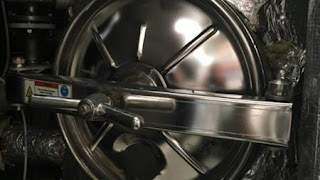RSM Castings Ltd was fined £33,739 (inc.costs) after an employee
suffered severe crush injuries while working on a mould
making machine.
The circumstances were:
- The accident occurred on a moulding machine on 11 April 2018
- There was inadequate safeguarding to prevent access between the closing pattern parts of the moulding machine.
- The employee was attempting to light the burners on the machine.
- While he leant into the machine the pattern plate closed on his head and upper body.
- He suffered extensive injuries, including a broken neck, back fractures, broken ribs, a fractured shoulder blade, a ruptured spleen, torn liver, a punctured lung, facial fractures and loss of teeth. He remains unable to return to work as a result of his injuries.
The HSE Inspector commented:
“This case highlights the importance of foundries checking guarding on their machines and not to be complacent about machinery safety. In this case RSM Castings failed to ensure that the machine was guarded to the correct standard and it could have easily resulted in a fatal injury.”
“This case highlights the importance of foundries checking guarding on their machines and not to be complacent about machinery safety. In this case RSM Castings failed to ensure that the machine was guarded to the correct standard and it could have easily resulted in a fatal injury.”





